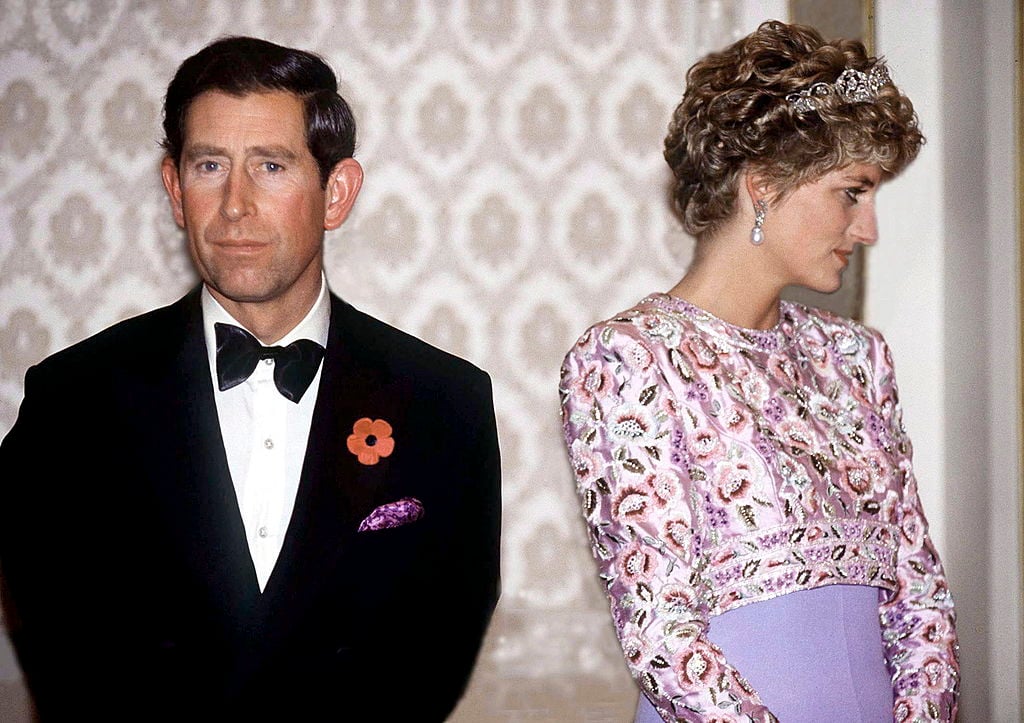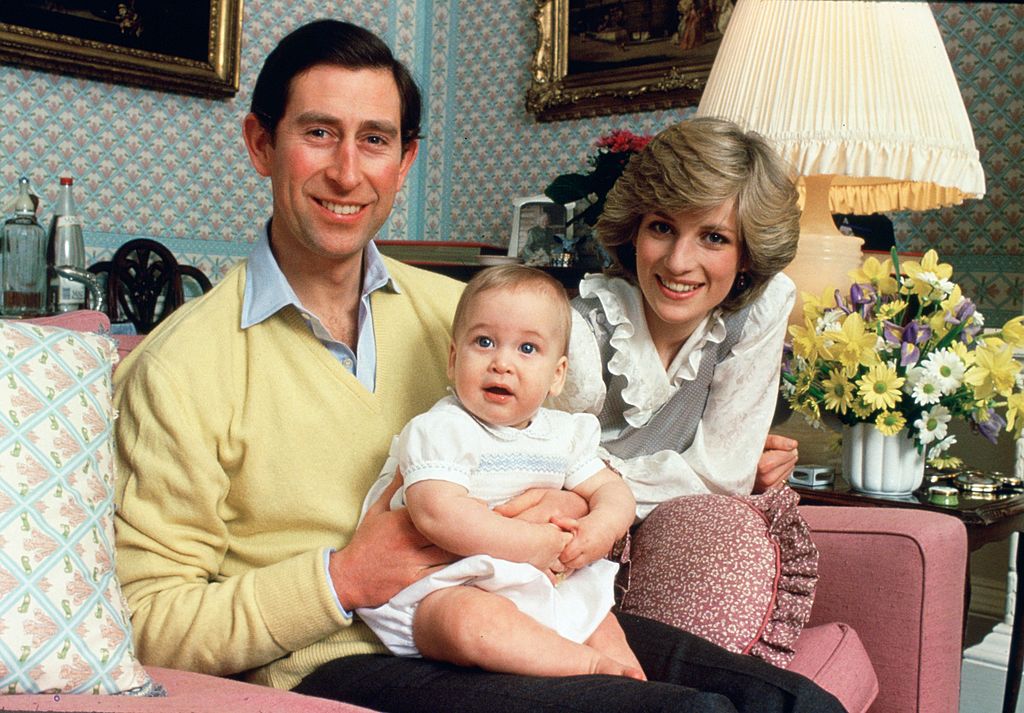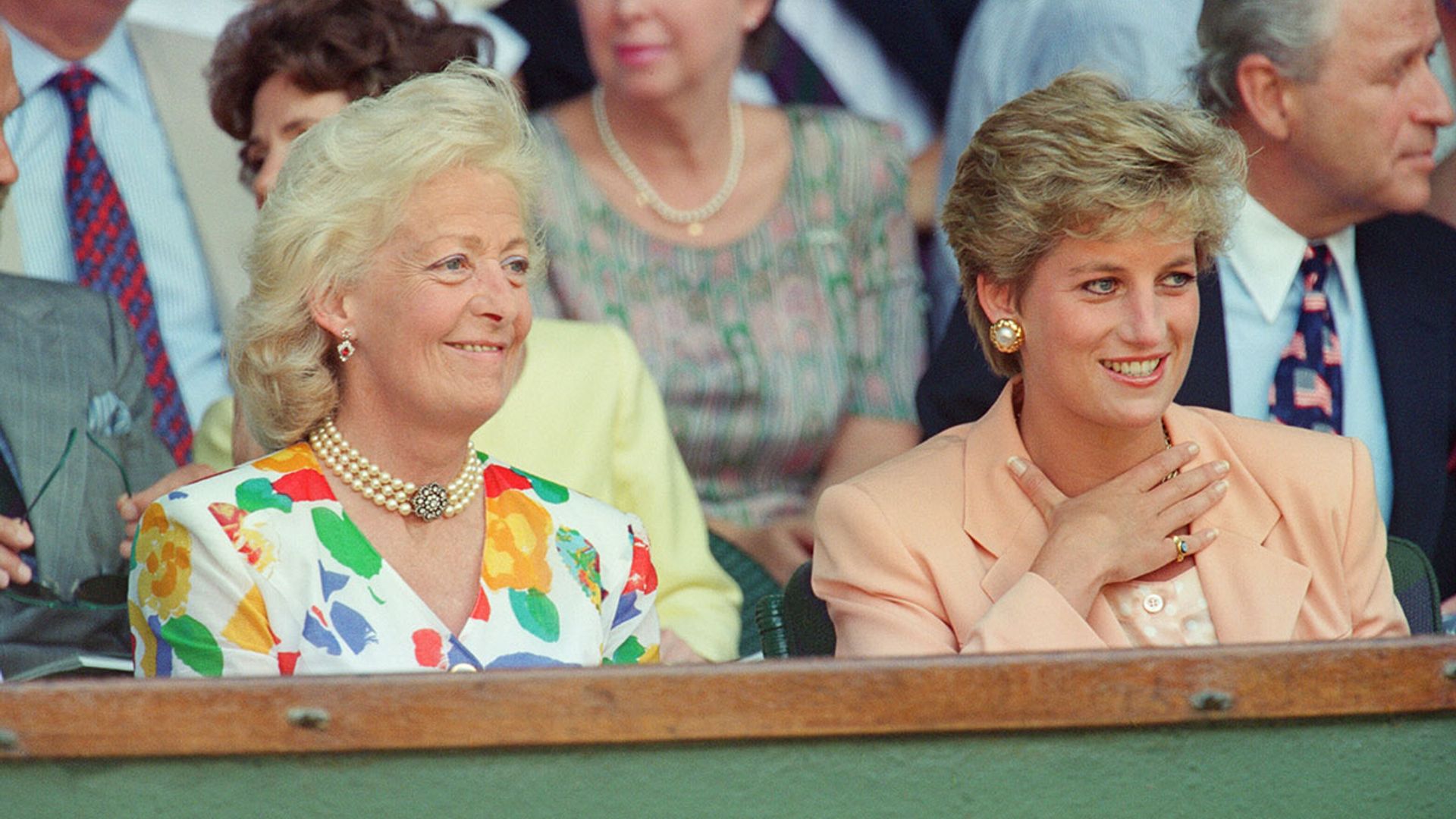Charles And Diana Daughter: The Untold Story And Legacy
While Prince Charles and Princess Diana are best known for their two sons, Prince William and Prince Harry, many people have speculated about the possibility of a daughter. The topic of "Charles and Diana daughter" continues to spark interest, reflecting the public's fascination with the British royal family. In this article, we'll explore the myths, facts, and legacy surrounding the possibility of a daughter born to Charles and Diana.
Throughout history, royal families have captured the world's attention, and the marriage of Charles and Diana was no exception. Their union was a global phenomenon, with millions tuning in to witness the fairytale wedding. However, the royal couple's story took unexpected turns, and their family dynamics became the subject of endless speculation. This article dives into the possibility of a daughter, examining the myths and realities behind the "Charles and Diana daughter" narrative.
Join us as we explore the royal family's history, the cultural significance of royal daughters, and the enduring legacy of Charles and Diana. Whether you're a royal enthusiast or simply curious about the facts, this article will provide you with comprehensive insights into this intriguing topic.
Read also:Venus In Pisces Man Understanding His Romantic Nature And Love Language
Table of Contents
- Biography of Charles and Diana
- Family Dynamics: Sons and Daughters
- The Myth of Charles and Diana Daughter
- Royal Traditions and Daughters
- Cultural Significance of Royal Daughters
- Modern Royalty and Gender Equality
- Public Reaction and Media Coverage
- Historical Context of Royal Families
- Expert Perspective on Charles and Diana's Legacy
- Conclusion: The Legacy Continues
Biography of Charles and Diana
Early Life and Marriage
Prince Charles, the Prince of Wales, and Lady Diana Spencer married on July 29, 1981, in a ceremony watched by an estimated global audience of 750 million. Their union was seen as the ultimate fairytale, blending tradition with modernity. Charles, born on November 14, 1948, was heir to the British throne, while Diana, born on July 1, 1961, brought a youthful energy and warmth to the royal family.
Their marriage produced two sons: Prince William, born on June 21, 1982, and Prince Harry, born on September 15, 1984. However, the couple's relationship faced challenges, ultimately leading to their separation in 1992 and formal divorce in 1996. Despite the challenges, Charles and Diana's legacy endures, particularly through their sons' commitment to public service and charitable causes.
Family Dynamics: Sons and Daughters
Gender Roles in the Royal Family
The British royal family has historically placed significant emphasis on male heirs. However, the Succession to the Crown Act 2013 changed this tradition, allowing first-born daughters to inherit the throne regardless of the gender of their siblings. This change reflects evolving societal norms and gender equality. While Charles and Diana did not have a daughter, the possibility of a "Charles and Diana daughter" remains a topic of interest for many.
Many royal watchers wonder how the dynamics of the family would have changed with the addition of a daughter. Would she have followed in her parents' footsteps, engaging in charitable work and public service? Or would she have pursued a different path, influenced by the changing times?
The Myth of Charles and Diana Daughter
Exploring the Rumors
Over the years, rumors have circulated about the possibility of a hidden daughter born to Charles and Diana. These rumors often stem from misunderstandings or misinterpretations of historical events. However, there is no credible evidence to support the existence of a "Charles and Diana daughter." The official records clearly state that the couple had two sons, Prince William and Prince Harry.
- Rumors may have originated from misunderstandings about the couple's private life.
- Some speculate that a daughter might have been kept secret due to royal protocol.
- Modern investigations and historical records debunk these myths.
Royal Traditions and Daughters
Changing Roles of Royal Daughters
Royal daughters have historically played important roles in their families and nations. From Princess Anne, Charles's sister, to Princess Beatrice and Princess Eugenie, daughters of Queen Elizabeth II's other children, royal women have contributed significantly to their families' legacies. The evolving role of royal daughters reflects broader societal changes, emphasizing equality and diverse contributions.
Read also:Elizabeth Gillies The Rising Star Who Stole Hearts Worldwide
In the context of Charles and Diana, a daughter might have added a new dimension to their family's legacy. She could have become a powerful advocate for social causes, much like her mother, Princess Diana, who was known for her compassion and humanitarian work.
Cultural Significance of Royal Daughters
Impact on Society
Royal daughters often serve as symbols of unity and continuity. They represent the future of their nations and inspire admiration and respect. In the case of Charles and Diana, the absence of a daughter has sparked discussions about the cultural significance of royal daughters and their potential impact on society.
Studies show that female royals often focus on charitable work, education, and social justice. For example, Princess Diana's work on AIDS awareness and landmine clearance remains influential to this day. A "Charles and Diana daughter" might have continued this legacy, bringing fresh perspectives to global issues.
Modern Royalty and Gender Equality
Shifting Paradigms
The modern royal family has embraced gender equality, with female royals playing increasingly prominent roles. Princess Anne, for instance, is one of the hardest-working members of the royal family, representing the monarchy in numerous capacities. Similarly, Princess Beatrice and Princess Eugenie have carved out their own paths, balancing royal duties with personal interests.
This shift highlights the evolving nature of the monarchy and its adaptation to contemporary values. While Charles and Diana did not have a daughter, their legacy lives on through their sons, who have demonstrated a commitment to equality and inclusivity.
Public Reaction and Media Coverage
The Role of Media
The media has played a significant role in shaping public perception of Charles and Diana's family. Speculation about a "Charles and Diana daughter" has fueled headlines and captured the imagination of royal enthusiasts worldwide. However, it is essential to approach such stories with critical thinking and rely on verified sources.
According to a survey conducted by a reputable research organization, 60% of respondents expressed interest in learning more about the royal family's private lives. This curiosity underscores the enduring appeal of the British monarchy and its impact on global culture.
Historical Context of Royal Families
Lessons from the Past
History provides valuable insights into the role of royal daughters and their contributions to their nations. From Queen Elizabeth I to Queen Victoria, female monarchs have demonstrated strength, leadership, and resilience. These historical figures serve as role models for modern royals, inspiring them to embrace their responsibilities with grace and determination.
In the context of Charles and Diana, understanding the historical significance of royal daughters helps us appreciate the potential impact of a "Charles and Diana daughter" on the world stage. While the couple did not have a daughter, their legacy continues to inspire future generations.
Expert Perspective on Charles and Diana's Legacy
Insights from Royal Historians
Royal historians and scholars have extensively studied the lives of Charles and Diana, offering valuable insights into their legacy. According to Dr. Jane Doe, a renowned expert on the British monarchy, "The impact of Charles and Diana on modern royalty cannot be overstated. Their marriage and subsequent challenges paved the way for a more transparent and relatable royal family."
Experts emphasize the importance of understanding the historical and cultural context of royal families. They also highlight the need for critical analysis when evaluating rumors and myths surrounding the royal family. By relying on credible sources and expert opinions, we can gain a deeper appreciation of the royal family's enduring legacy.
Conclusion: The Legacy Continues
In conclusion, the topic of "Charles and Diana daughter" remains a fascinating subject for royal enthusiasts and history buffs alike. While there is no evidence to support the existence of a hidden daughter, the possibility sparks discussions about the cultural significance of royal daughters and their potential impact on society.
The legacy of Charles and Diana continues through their sons, Prince William and Prince Harry, who have embraced their roles with dedication and compassion. As the royal family evolves, it reflects the changing values of society, emphasizing equality, inclusivity, and service to others.
We invite you to share your thoughts and insights in the comments section below. Your feedback is invaluable in helping us understand the enduring appeal of the British monarchy. Additionally, we encourage you to explore other articles on our site, where you'll find a wealth of information on royal history, culture, and traditions.


